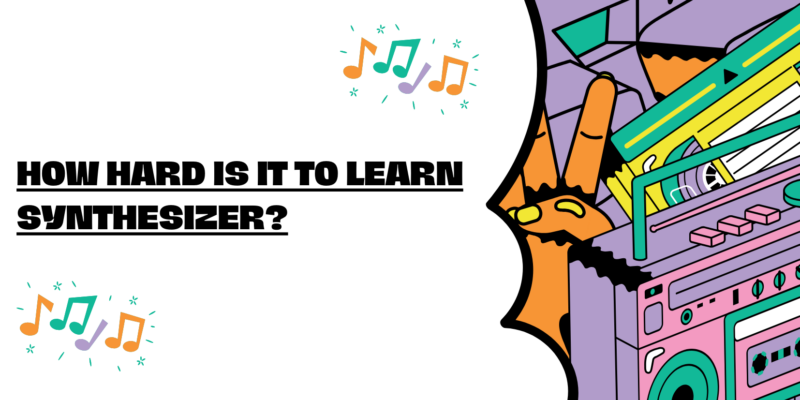Learning to play the synthesizer, like any musical instrument, is a rewarding endeavor that can bring joy and creative fulfillment. However, if you’re new to the world of synthesizers, you might be wondering just how challenging the journey will be. In this article, we’ll explore the factors that influence the difficulty of learning the synthesizer and offer some guidance to make your learning experience smoother.
1. Musical Background Matters
Your prior musical experience can significantly impact your learning curve with the synthesizer. If you already have a background in playing an instrument, reading sheet music, or understanding music theory, you’ll find it easier to grasp synthesizer concepts like scales, chords, and rhythm. However, even if you’re a complete beginner, don’t be discouraged. Many successful synthesizer players started with little to no prior musical knowledge.
2. Types of Synthesizers
The type of synthesizer you choose can influence the learning curve. Some synthesizers are designed with simplicity in mind, offering easy-to-use interfaces and presets that are beginner-friendly. Others, particularly modular synthesizers, can be highly complex and require a deep understanding of synthesis principles. Starting with a basic, user-friendly synthesizer is often recommended for beginners.
3. Learning Resources
The availability of learning resources, such as tutorials, online courses, books, and instructional videos, can significantly impact your learning journey. With the wealth of information available on the internet, you can access lessons, tips, and tricks to help you navigate synthesizer basics and beyond. A willingness to explore these resources can make the learning process more accessible.
4. Dedication and Practice
Like any skill, mastering the synthesizer requires dedication and practice. Regular practice sessions are crucial for developing your skills, improving your technique, and building your musical understanding. Consistency is key, so setting aside time to practice regularly will help you progress faster.
5. Synthesizer Basics
Understanding the fundamental concepts of synthesis is essential. These include:
- Oscillators: Learn how oscillators generate sound waveforms.
- Filters: Understand the role of filters in shaping the timbre of the sound.
- Envelopes: Grasp how envelopes control the amplitude and modulation of sound over time.
- Modulation Sources: Explore modulation sources like LFOs (Low-Frequency Oscillators) for adding movement and dynamics to your sounds.
6. Experimentation and Creativity
One of the joys of learning the synthesizer is experimentation. Embrace your creative side and don’t be afraid to explore. Trying different settings, tweaking knobs, and experimenting with sound is an integral part of the learning process.
7. Patience and Persistence
Learning any musical instrument requires patience and persistence. You may encounter challenges and frustrations along the way, but these are natural aspects of the learning process. Stay committed to your musical journey, and you’ll find that challenges become stepping stones to improvement.
Conclusion: The Rewards of Synthesizer Mastery
In conclusion, learning the synthesizer is a journey that offers a mix of challenges and rewards. While it may seem daunting at first, with the right resources, dedication, and patience, you can make steady progress and discover the joys of creating your own unique sounds and music. Remember that the journey of learning an instrument is as fulfilling as the destination, and each step you take brings you closer to musical mastery. So, embrace the synthesizer with an open mind and a passion for sound, and let your creativity soar.


